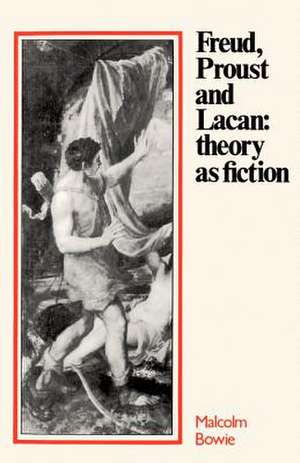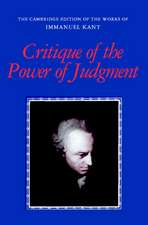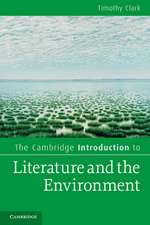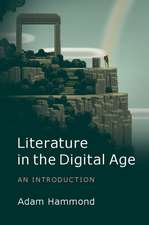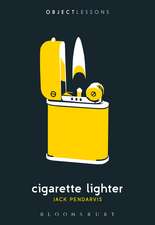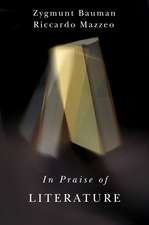Freud, Proust and Lacan: Theory as Fiction
Autor Malcolm Bowieen Limba Engleză Paperback – 28 ian 1988
Preț: 356.95 lei
Nou
Puncte Express: 535
Preț estimativ în valută:
68.30€ • 73.04$ • 56.95£
68.30€ • 73.04$ • 56.95£
Carte tipărită la comandă
Livrare economică 17 aprilie-01 mai
Preluare comenzi: 021 569.72.76
Specificații
ISBN-13: 9780521275880
ISBN-10: 0521275881
Pagini: 240
Ilustrații: 4 half-tones, index
Dimensiuni: 142 x 224 x 18 mm
Greutate: 0.31 kg
Ediția:Reprint
Editura: Cambridge University Press
Colecția Cambridge University Press
Locul publicării:Cambridge, United Kingdom
ISBN-10: 0521275881
Pagini: 240
Ilustrații: 4 half-tones, index
Dimensiuni: 142 x 224 x 18 mm
Greutate: 0.31 kg
Ediția:Reprint
Editura: Cambridge University Press
Colecția Cambridge University Press
Locul publicării:Cambridge, United Kingdom
Cuprins
List of illustrations; Acknowledgements; Notes on texts and translations; Introduction; 1. Freud's dreams of knowledge; 2. Proust, jealousy, knowledge; 3. Freud and Proust; 4. Lacan; 5. Lacan and literature; Epilogue; Notes; Index.
Recenzii
'The best written English-language treatment of Lacan in recent years is that found at the end of Malcolm Bowie's Freud, Proust and Lacan: theory as fiction. Although he is thoroughly conversant with the architectonics of Lacan's thought, professor Bowie's achievement is above all in the order of what used to be called new-critical close reading. He has an ear - or eye - for the sumptuousness, high buffoonery, asymmetry and indecorousness of Lacan's prose, and succeeds admirably in conveying them.' Jeffrey Mehlman, The Times Literary Supplement
'Bowie is at his superb best when engaging his talents as a literary critic. Ranging from the myth of Diana and Actaeon to Freudian images of theory and Proust's descriptions of Venetian paintings, Bowie's subtle and richly elaborated readings are always attentive to formal structure and tone as well as to thematic tensions. These essays confirm his place as one of the outstanding critics working in French today.' Toril Moi, French Studies
'Dans son introduction, Malcolm Bowie s'inquiète: comment sauver le discours des sciences humaines se la redondance ou du bavardage? Eh bien, tout simplement en suivant son exemple, c'est-à-dire en alliant une culture d'une richesse exceptionnelle à une ironie cinglante et à un goüt margué pour les controverses.' Roland Jaccard, Le Monde
'Rares sont les essais critiques qui rivalisent en beauté avec les textes qu'ils étudient. Le recuril de Malcolm Bowie est de ceux-là. Grand maître de la langue anglaise, Bowie a l'avantage de dénicher des aspects souvent laissés de côtés, parfois de maniére symptomatique, concernant les trois auteurs dont il traite. Il reste un des seuls critiques anglophones de Lacan dont on puisse conseille la lecture au public français.' Bruce Fink, L'Ane
'As an exploration of the affinities of theory and fiction, this book is a brilliant and lucid, often provocative, investigation of the intersections of literature and psychoanalysis, text and desire. On this important subject it is full of stimulating insights and incitements to further reflection. It is a model of critical intelligence.' Ross Chambers, University of Michigan
'Professor Bowie's perspicious triangulation of the works of Freud, Proust, and Lacan yields fascinating insights into the thought of each - and provocative, though appropriately qualified, speculations regarding the relations among 'theory', 'fiction', and 'perception' in their respective efforts to map the terrain of human consciousness. This book should be welcomed by critics, theorists, and historians of literature and culture alike.' Hayden White, University of California, Santa Cruz
'Bowie is at his superb best when engaging his talents as a literary critic. Ranging from the myth of Diana and Actaeon to Freudian images of theory and Proust's descriptions of Venetian paintings, Bowie's subtle and richly elaborated readings are always attentive to formal structure and tone as well as to thematic tensions. These essays confirm his place as one of the outstanding critics working in French today.' Toril Moi, French Studies
'Dans son introduction, Malcolm Bowie s'inquiète: comment sauver le discours des sciences humaines se la redondance ou du bavardage? Eh bien, tout simplement en suivant son exemple, c'est-à-dire en alliant une culture d'une richesse exceptionnelle à une ironie cinglante et à un goüt margué pour les controverses.' Roland Jaccard, Le Monde
'Rares sont les essais critiques qui rivalisent en beauté avec les textes qu'ils étudient. Le recuril de Malcolm Bowie est de ceux-là. Grand maître de la langue anglaise, Bowie a l'avantage de dénicher des aspects souvent laissés de côtés, parfois de maniére symptomatique, concernant les trois auteurs dont il traite. Il reste un des seuls critiques anglophones de Lacan dont on puisse conseille la lecture au public français.' Bruce Fink, L'Ane
'As an exploration of the affinities of theory and fiction, this book is a brilliant and lucid, often provocative, investigation of the intersections of literature and psychoanalysis, text and desire. On this important subject it is full of stimulating insights and incitements to further reflection. It is a model of critical intelligence.' Ross Chambers, University of Michigan
'Professor Bowie's perspicious triangulation of the works of Freud, Proust, and Lacan yields fascinating insights into the thought of each - and provocative, though appropriately qualified, speculations regarding the relations among 'theory', 'fiction', and 'perception' in their respective efforts to map the terrain of human consciousness. This book should be welcomed by critics, theorists, and historians of literature and culture alike.' Hayden White, University of California, Santa Cruz
